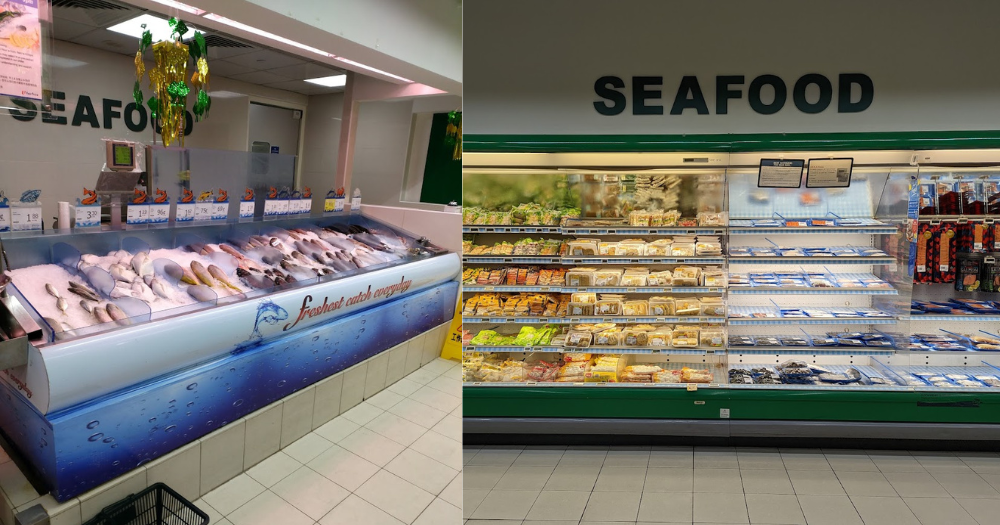There will be no immediate change in the Singapore Food Agency (SFA)'s stance on seafood imports from Japan after the country began releasing nuclear wastewater containing radioactive elements into the sea on Aug. 24, 2023.
SFA has been closely monitoring food imports from Japan, which includes radiation surveillance, and the results have been satisfactory.
Food products that fail SFA's inspections & tests will not be allowed for sale
In response to Mothership's queries, SFA pointed to an oral reply by Minister for Sustainability and the Environment Grace Fu on Aug. 3 to a parliamentary question on food safety risks and the environmental impact of the discharge of nuclear wastewater at Fukushima.
In her reply, Fu said the SFA and the National Environment Agency (NEA) adopt a science-based approach towards assessing food safety risks and environmental impacts, respectively.
To ensure food safety, food imported into Singapore is subjected to SFA's surveillance and monitoring regime, which includes radiation surveillance, revealed the minister.
Food products that fail SFA's inspections and tests will not be allowed for sale.
"SFA has been closely monitoring food imports, including those from Japan, and our surveillance results have been satisfactory," added Fu.
Fu's statement was in line with an earlier media release issued by SFA in July 2023, which stated that the agency had not detected any radioactive contaminants in food imports from Japan since 2013.
Nevertheless, Fu shared that SFA would "keep abreast of international developments, expert reports from the International Atomic Nuclear Agency, and foreign food safety authorities" to augment its surveillance and monitoring regime.
According to the July 2023 media release issued by SFA, food imports from Japan consistently made up less than 1.5 per cent of Singapore's total imports in the past decade.
In the meantime, imports from Fukushima prefecture constitute less than 0.01 per cent of Singapore's total food imports in 2022.
Radioactivity in S'pore waters continues to remain within natural background levels: NEA
As for the seawater quality in and around Singapore waters, Fu revealed that the NEA had assessed that Japan's planned discharge of treated radioactive water from the Fukushima nuclear plant into the sea is "unlikely" to cause an impact.
She also said NEA has been closely monitoring Singapore's waters since 2019 as part of the agency's environmental baseline radiation monitoring programme.
"The radioactivity measured continues to remain within our natural background levels," Fu shared.
SFA and NEA will continue to closely monitor the radiation levels in Singapore's food imports and environment, respectively, the minister pledged.
Background
At a ministerial meeting on Aug. 22, 2023, Japanese prime minister Fumio Kishida announced that the government would start releasing the nuclear wastewater into the sea two days later after diluting it to concentrations below national and international standards.
In line with the government's announcement, TEPCO kicked off the initial release at 1:03pm (Japan time) on Aug. 24.
The initial release would involve diluting 7,800 tonnes of wastewater with seawater and was scheduled to last for a period of 17 days.
The entire discharging process, however, would take around 30 years to complete.
In response to the release, the General Administration of Customs of the People's Republic of China announced that all imports of aquatic products originating from Japan would be halted.
Likewise, the South Korean government also said the restrictions it had previously placed on seafood imports from Japan would be maintained.
Top images via Google Maps
If you like what you read, follow us on Facebook, Instagram, Twitter and Telegram to get the latest updates.



